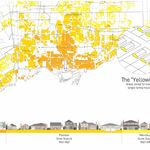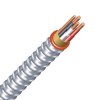Eug
Senior Member
It should be noted that some condos won't allow Xmas lights even if there is a power receptacle there.
Not ideal, and illegal too. This doesn't meet building code.When I moved into where I am now the superintendent was happy to drill through the balcony wall for $20 so that I could feed an outdoor extension cord to the balcony. I had to cut the end off of the extension cord to pull it through, then I spliced it back together & caulked the hole to prevent spiders/drafts and it's worked perfect for 11 or 12 years now. Not ideal, but it works!








